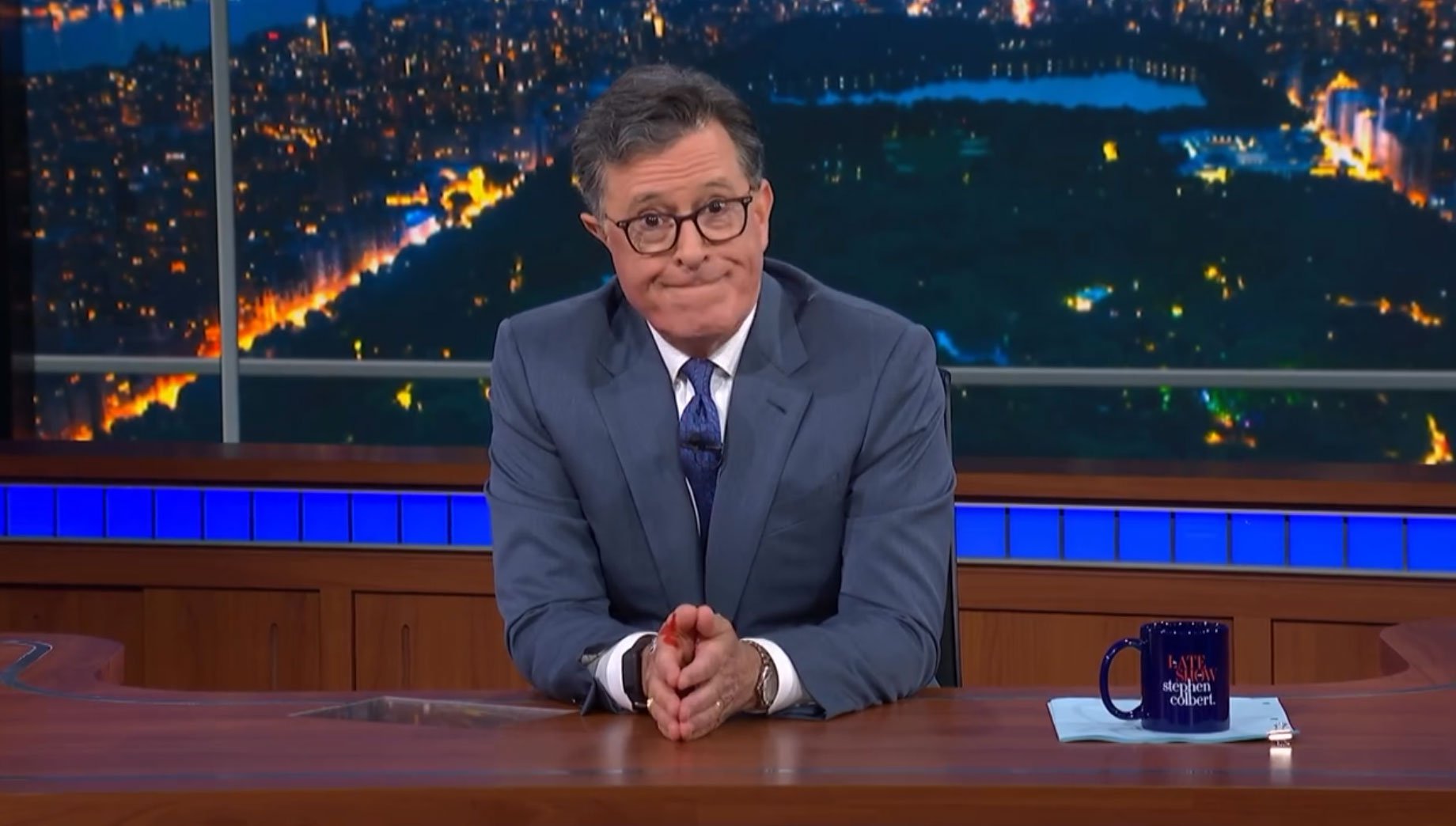The Unexpected End of The Late Show with Stephen Colbert
The decision to end The Late Show with Stephen Colbert has sparked a wave of speculation and controversy across the United States. While CBS claims the move is purely financial, many Americans believe there’s more to the story. Social media users have flooded platforms with their skepticism, questioning whether the network’s official explanation holds up under scrutiny.
On Thursday night, Stephen Colbert delivered the news that no late-night host ever wants to share: his show will not return next season. “It’s not just the end of our show, but it’s the end of The Late Show on CBS,” he said to a stunned audience. “I’m not being replaced. This is all just going away.” His tone was somber, but many viewers sensed an underlying tension.
Just days before the announcement, Colbert had criticized CBS’s parent company, Paramount, for settling a $16 million legal case with former President Donald Trump. The lawsuit involved the editing of a 60 Minutes interview with Kamala Harris during the 2024 election. Shortly after Colbert publicly condemned the settlement, the network made its decision to cancel the show.
Tolong support kita ya,
Cukup klik ini aja: https://indonesiacrowd.com/support-bonus/
CBS insists the cancellation has nothing to do with politics or the content of The Late Show. However, the network’s denial came across as more like damage control than a confident statement. The show has consistently ranked as one of the highest-rated in late-night television, making the financial reasoning even harder to swallow.
Rolling Stone’s Alan Sepinwall pointed out that the official statement from CBS made no mention of Colbert himself, despite the fact that he was likely asked to provide a response. This omission raised further questions about the true motivations behind the decision.
Meanwhile, Donald Trump took to Truth Social to express his delight at Colbert’s departure. “I absolutely love that Colbert got fired. His talent was even less than his ratings. I hear Jimmy Kimmel is next. Has even less talent than Colbert!” he wrote. The president’s comments painted the network’s decision as a political move, which some found telling.
The Writers Guild of America also voiced concerns, calling for an investigation into Paramount over potential wrongdoing. Their statement suggested that the cancellation could be a “bribe” to curry favor with the Trump administration, especially as the company seeks approval for a merger with Skydance Media. US Senator Bernie Sanders echoed these sentiments, stating that the timing of the cancellation was too convenient to be a coincidence.
Hollywood figures have also spoken out. Jimmy Kimmel took to social media to express his support for Colbert, writing, “Love you Stephen. Fk you and all your Sheldons CBS.” Fans have followed suit, with many sharing their outrage online. One user wrote, “Good morning and Happy Friday to everyone who agrees that it was a bulls* move for CBS to cancel Stephen Colbert’s show just days after he called out their parent company Paramount for bending the knee to Trump.”
Colbert’s show has long been a voice of resistance against authoritarianism and misinformation. During the Trump presidency, his sharp satire often went viral, prompting responses from the former president and conservative critics alike. He was one of the few late-night hosts willing to hold power accountable with honesty and wit.
While CBS maintains that the decision is purely financial, the timing and lack of transparency make it difficult to accept this explanation. The ongoing merger between Paramount and Skydance Media adds another layer of intrigue. With the FCC, an agency that reports to the President, still considering the deal, some see the cancellation as a quiet concession to secure approval.
This situation raises serious concerns about the future of free speech and independent media in America. As Colbert’s voice is silenced, the warning bells of creeping authoritarianism grow louder. The question remains: what other stories are being quietly buried beneath corporate interests and political pressure?







